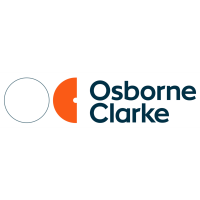UK Employment Law Coffee Break: April Changes, Tribunal Anonymity & Fraud Prevention
Welcome to our latest Coffee Break in which we look at the latest legal and practical employment law developments impacting UK employers.
April employment law changes and new Vento bands published
April sees a number of changes that affect employers coming into force (see here and here for our earlier Coffee Breaks), including increases to the national minimum wage rates and other statutory payments, as well as the new statutory right to neonatal leave and pay.
New Presidential Guidance on Employment Tribunal awards for injury to feelings in line with the Vento bands has now also been published. For claims presented on or after 6 April 2025, the Vento bands are as follows:
- A lower band of £1,200 to £12,100 for less serious cases;
- A middle band of £12,100 to £36,400 for cases that do not merit an award in the upper band; and
- An upper band of £36,2400 to £60,700 for the most serious cases. The most exceptional cases are capable of exceeding £60,700.
Tribunals have a discretion to award compensation within the Vento bands in light of the specifics of the particular case. They compensate for the emotional distress and injury to feelings suffered by the claimant due to discrimination. This includes the psychological impact and any resulting harm to the claimant's mental well-being. The amount awarded is intended to reflect the severity and impact of the discriminatory behaviour on the individual.
EAT grants anonymity in tribunal proceedings where neurodivergence would harm career prospects
A recent decision from the Employment Appeal Tribunal (EAT) has highlighted the stigma which neurodivergent employees may feel when applying for jobs and in the workplace.
The claimant suffered from an autism spectrum disorder (in particular, Aspergers Syndrome). He had concealed it from his family and previous employers, although he had made it known to the respondent employer.
He brought disability discrimination claims in the tribunal but was concerned that if knowledge of his disability became public it would have a serious adverse effect on his employability and, in addition, if he resumed his former employment as a teacher, "knowledge of his disability amongst pupils would result in considerable disorder". His concerns were based on personal experience, as well as academic research and other widely available material. He applied for an anonymity order in the tribunal – his supporting witness statement referred to published statistics regarding unemployment rates among autistic people and attitudes on hiring autistic staff and annexed academic reports in support.
Following a second appeal, the EAT granted his application...
CONTINUE READING HERE
Osborne Clarke, Inc.
-
Felix Hilgert Partner, US
- April 08, 2025
- (650) 714-7773
- Send Email


